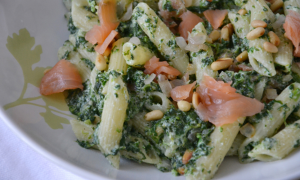Discover the right diet to fight arthritis symptoms
In 400 BC, the Greek physician Hippocrates – the ‘Father of Western Medicine’ – had already discovered that food has a major impact on our health. Naturally, this also includes our joint health. Some foods seem to decrease the symptoms of arthritis and osteoarthritis, while others make the inflammation in the joints worse. So what are the right foods to combat osteoarthritis symptoms? Read on to find out!
Healthy foods
Do you suffer from wear and tear, or inflammation in the joints? Then just like everyone else, you should try to keep healthy and, if necessary, also eat healthier. That is much easier than it sounds. Try to eat two ounces of fresh vegetables and two fruits a day. Twice a week, serve oily salt-water fish. Make sure you have a varied diet, eat at set times and last but not least, and do not overeat, because every kilogram of excessive weight puts additional strain on the joints. Maintaining a healthy weight is just as important as a healthy diet. Also make sure you drink plenty of (mineral) water, tea and fresh juices throughout the day. If you closely follow these basic guidelines, you are well on your way to a healthier lifestyle.
All the goodness of Omega-3
If you suffer from joint problems you should include a lot of foods containing Omega-3 fatty acids in your diet, as these substances have anti-inflammatory properties. Many types of fish, including salmon, mackerel, herring and tuna, are rich in Omega-3 fatty acids, but shellfish and molluscs too are a good source of these very healthy fatty acids. A few examples are lobster, crab, shrimps, prawns and last but definitely not least, Green-lipped mussel, which contains not only the well-known Omega-3 fatty acids EPA and DHA, but also several rare Omega-3 fatty acids with powerful anti-inflammatory properties. Molluscs also contain some of the substances that make up the joints, such as Glucosamine, Chondroitin and Hyaluronic acid. The disadvantage of shellfish in the diet is that they sometimes contain toxic substances. To counter their effect, eat a lot of fresh vegetables with your meal.
To boost the absorption of anti-inflammatory Omega-3 fatty acids doctors also recommend that you frequently eat spinach and purslane. Meat also contains these valuable fatty acids for the joints. The more the animals moved around freely, the more Omega-3 fatty acids their meat contains, so opt mainly for organic or free-range varieties.
More good foods to combat osteoarthritis
It is no secret that some foods have a mild anti-inflammatory or protective effect on the joints. Therefore, doctors recommend regularly including them in your diet. If you suffer from joint problems, the following vegetables and fruits can give you a little boost: raw garlic, onions, pumpkin, beetroot, broccoli, fresh legumes, green cabbage, avocado and Blackcurrant (both the fruit and the seeds). In China, people use fresh ginger as a popular remedy against joint pain, and have for centuries, as it contains active ingredients that decrease pain and boost mobility. If you regularly use turmeric in your recipes, do not hesitate to add a little extra, because Curcumin, the yellow coloring agent in this herb, has powerful anti-inflammatory properties.
Limit Omega-6 fatty acids
Sunflower oil, margarine, nuts, seeds, soy products and grains contain a lot of Omega-6 fatty acids, which help maintain the normal functions of the brain, the nervous system and the cardiovascular system. Since our diet contains greater quantities of these fatty acids than of Omega-3, we easily consume more of them. That is anything but great news for our joints, because Omega-6 fatty acids contain a lot of linoleic acid. The body converts linoleic acid into arachidonic acid. Excessive quantities of this acid promotes inflammation. Moreover, arachidonic acid blocks the absorption and anti-inflammatory properties of Omega-3 fatty acids in the body. Therefore, you should try to limit your consumption of foods that are rich in Omega-6 and use more olive oil, coconut oil or butter when cooking. Also limit your consumption of red meat, as it contains quite a lot of arachidonic acid.
Special precautions in case of gout: prevent high uric acid levels in the blood
In specific cases, for example if you suffer from gout, you need to be extra careful that the uric acid levels in your blood do not get too high, as this raises the risk of joint problems. You should therefore try to avoid certain foods altogether, including asparagus, cauliflower, spinach, mushrooms, cod, salmon, shellfish, mincemeat, organ meat (such as chicken liver), and alcohol. For more detailed advice on what to eat in case of gout click here >>>

Share this page
Tweet

Download for free the booklet ‘Moving without pain’ with a retail value of $6.75 / £4.95.
Any questions? Please feel free to contact us. Contact us.






